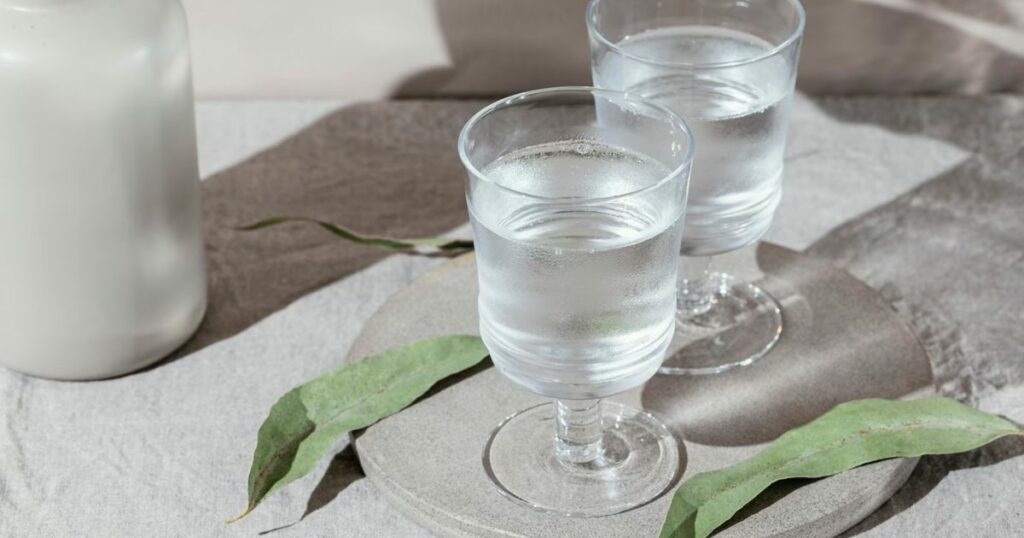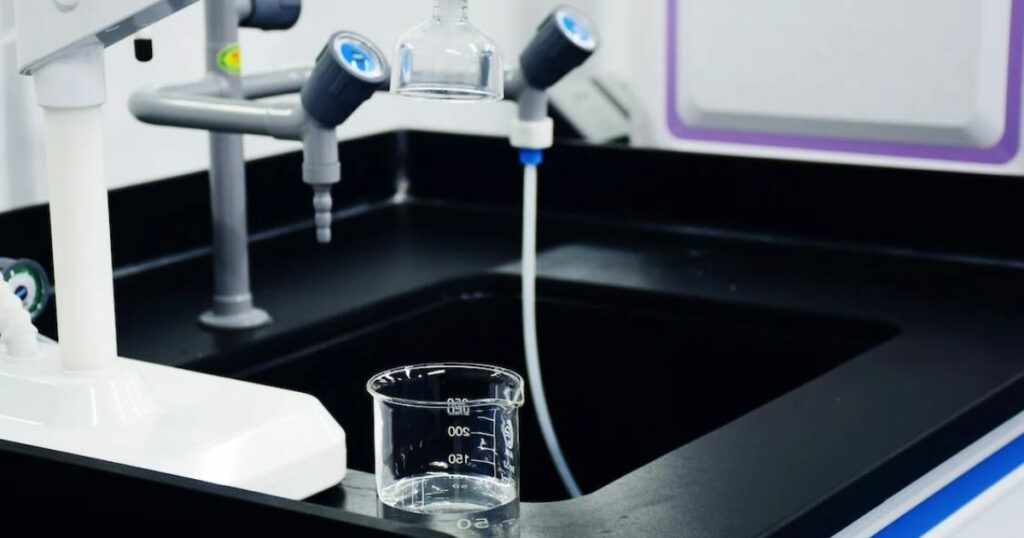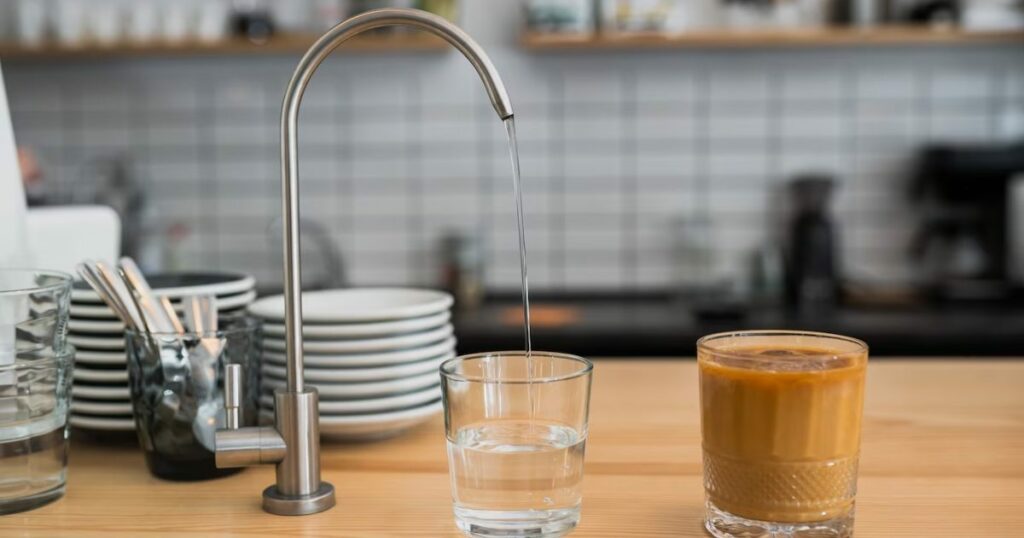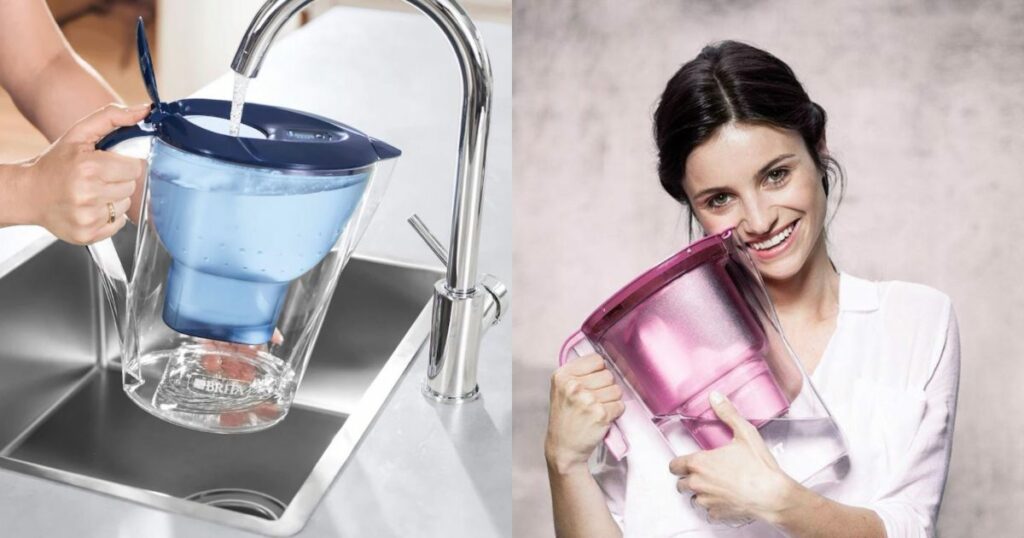Most of the water we use for drinking, cooking and washing has been processed through one or more types of water filters before it reaches us. These water filters are like protective devices that clean the water from chemicals and pollutants that are harmful to our health. They also remove various deposits, odors, discoloration and unpleasant tastes.
The biochemical characteristics of the water in your area, the water pressure, the type of pipes it runs through, and even your home water source all affect what is in the water you have access to. The government is not able to regulate all pollutants that may be present in the public water supply.
And even if your water comes from a private well, there’s still an important decision to make about how to treat, filter, soften and purify your water.
Therefore, in this article, we will look at the following sections:
- What is a water filtration system
- Reasons why it is important to filter water
- The most popular water filters used
There are several filtration systems and water filters that can improve the condition of the water available to you. So let’s learn more about them in this article.
What is a water filtration system

In our article Clean water is safe water, we looked at what clean drinking water means. All drinking water that reaches us has passed through a filtration system that removes harmful chemical particles, including dust, bacteria, viruses, etc. The system also includes a water softener, which is responsible for the water filtration process.
The whole process is carried out with one of the most commonly used types of filters – reverse osmosis. Such a solution can be used to filter water in your home, in the production of food or medicine. It must be admitted that the drinking water sold in stores is often filtered through special osmosis filters beforehand. They allow water to move while ensuring the separation of pollutants and chemicals.
Next, the water flows through the pipes through the osmosis membrane and in this process it is cleaned of all impurities. However, minerals that are necessary for human health also disappear in the process.
Since completely purified water is not recommended for human consumption in the long term, in addition to osmosis filters, other filters are also installed, which enrich the water with substances necessary for the body.
Reasons why it is important to filter water
Whether your home water comes from city lines or neighborhood systems, it’s critical to ensure that the water you use in your daily life is healthy and safe from common contaminants. An effective method for solving such problems is the installation of a water filtration system.
Although tap water in urban areas is healthy and safe to drink, not everyone trusts it. Therefore, water filter systems can be used, which provide healthier and cleaner water than tap water.
Water filtration for the public

Water filtration and purification is very important for many reasons, mainly public health and safety. However, the government also provides water filtration systems for environmental and economic reasons.
For public health
One of the main reasons governments get involved in water treatment is to protect public health. Water can easily become contaminated with harmful substances, including bacteria, viruses, parasites and various types of pollutants. These, in turn, can cause a variety of health problems, including serious diseases such as cholera, typhoid and dysentery.
By ensuring that water supplies are properly treated and filtered, governments can help prevent the spread of these diseases. As a result – to protect public health.
For infrastructure protection
Untreated water can also cause problems with infrastructure as well. For example, water with a high mineral content can cause scale to form, which can damage pipes and equipment. This can lead to significant repair costs.
For economic reasons
Clean water is essential for various economic activities, from manufacturing to agriculture to tourism. If the water supply is not properly treated, it can affect these activities and harm the economy.
For environmental protection
Proper water treatment also helps protect the environment. Treating water before it is returned to the environment helps prevent the spread of pollutants and helps maintain the health of aquatic ecosystems.
For social equality
Finally, access to clean water is a basic human right. By providing clean water, governments help ensure that all people, regardless of socioeconomic status, have access to this important resource.
In many developed countries, the government takes responsibility for treating water to make sure it is safe for consumption. However, access to clean, safe water remains a significant problem in many developing countries.
Water filtration in your home

Of course, it is also possible to install a filter in your home. It also has several great benefits that can improve your daily life. Here are some of them.
Improved taste and smell
Water filters can remove elements that cause water to taste or smell bad, such as chlorine and certain organic compounds. Some people find that filtered water tastes better than unfiltered tap water.
Removal of contaminants
Although domestic water is treated, it can still contain a variety of contaminants, including industrial chemicals, pesticides, heavy metals (such as lead), and trace amounts of microorganisms. A good home water filter can remove these contaminants.
Health protection
Some contaminants in water can be a health hazard. For example, lead pollution is a serious concern in some areas, and long-term exposure can cause health problems. Some microbial contaminants can also cause disease.
Home water filtration systems can help reduce these risks. If you’re looking to take your health a step further, a water filter is a good place to start.
Cost savings
Although purchasing a water filter is not free, it can save you money over time by not buying bottled water, which is often more expensive.
With your filter, you can fill the bottle with you during your daily activities.
The most popular water filters used
Not every water filter can remove all contaminants and completely purify your water. In addition, as we have already clarified at the beginning of the article, completely purified water is not recommended for human health for a long time either. It is important to preserve the valuable minerals in the water treatment process.
In order to choose the types of water filters that best suit your needs, we recommend that you first use a water test kit to find out what kind of water contaminants you have to deal with. And then you can choose a water filter that suits your situation.
But before that, familiarize yourself with the most popular types of water filters and systems to choose from.
1.Activated aluminum oxide
If you need to remove fluoride or arsenic from your water, activated alumina (AA) is the best filter. This highly porous compound made of aluminum oxide has a high adsorption capacity. This means that when AA absorbs chemicals into its activated porous sphere, the chemicals are not just held in the pores – the materials actually bond together.
This quality makes AA a versatile choice for removing toxins and metals from contaminated water without the risk of these substances re-leaking into the environment. The longer AA is in contact with water, the more harmful chemicals it can remove.
Activated aluminum oxide perfectly cleans drinking water for use at home, as well as in industry, water treatment plants or toxic waste collection.
2. Alkaline and water ionizers
Alkaline or ionized water is considered one of the healthiest water options. It is claimed to offer benefits such as improved bone and digestive health, reduced risk of cancer and heart disease, better skin health and even improved taste.
The electrically charged minerals in ionized water separate alkaline water from acidic water, which softens the water and improves its drinking quality.
It is also important to mention that alkaline ionizers lack good filtering ability. Therefore, it is best to use them in conjunction with other water purifiers.
3. Carbon block and activated carbon
The next type of water filtration is with charcoal. They are also called carbon filters or activated carbon filters and are commonly used in home water filters. For example, in filters that can be placed on the tap, under the sink or in a water pitcher.
Activated carbon filters perfectly attract and adsorb pollutants, remove them from water. This material does not require electricity and is economical.
But also with its shortcomings. It is insufficient for the removal of minerals and dissolved organic matter.
4. Ceramic filters
Another option is ceramic water filters. The tiny pores on the surface of the ceramic will trap any substance larger than the pores themselves, thus protecting it from water. They are easy to install, easy to use, cheap and no electricity powered filters.
By treating with silver, the ceramic water filter can also kill bacteria and prevent mold and algae from forming in the water. However, they cannot move faster than they can filter and are not effective at sifting out viruses.

5. Distillation
Distillation is a highly effective purification process in which water is boiled into steam and then cooled to return it to liquid form in a clean container. The process kills bacteria and improves the taste and smell of the treated water.
The process does require electricity or a heat source and is incredibly slow, so it won’t win in terms of efficiency.
6. Reverse osmosis
The method mentioned at the beginning of the article is reverse osmosis. In this method, water is forced through a semi-permeable membrane that allows the water to pass through, but not any contaminants, chemicals, metals, or parasites it may carry.
RO filter systems are very effective at removing harmful contaminants from water.
However, they tend to be more expensive than other types of water filters. High water pressure is required for these filters to work, and they tend to waste a lot of water in the purification process, purifying only a small fraction of the total water used.
7. Sand and sediment network
A mesh filter works in the same way as a strainer – they help filter large particles of dirt, clay, sand and rust from the water. They can’t completely clean, but they can prevent sediment from building up in your plumbing system.
8. Ultraviolet light
UV light is one of the safest and most effective ways to kill microorganisms in water, including viruses, bacteria, protozoa and parasites.
The water is exposed to high-frequency UV light radiation that passes through the glass element. This filtration method requires energy and is usually less expensive.
UV lamps do their best as water purifiers because they are the last step in the water purification system, when the water is filtered to the maximum. This is because light cannot pass through inorganic contaminants, which reduce its effectiveness.
In general, it is clear that there are many different types of water filters, but almost none of them are perfect. Therefore, it is most often observed that several filters are used in the water filtration process.
Let’s repeat ourselves and emphasize that you definitely don’t need all the types of water filters and filtration techniques if you want to purify tap water. We recommend that you do a water quality test – and if the water has any flaws and your suspicions are confirmed, then you will also be able to select the filtration method that will be most suitable in your case.
Good luck and remember to drink clean, fresh water regularly during the day!

